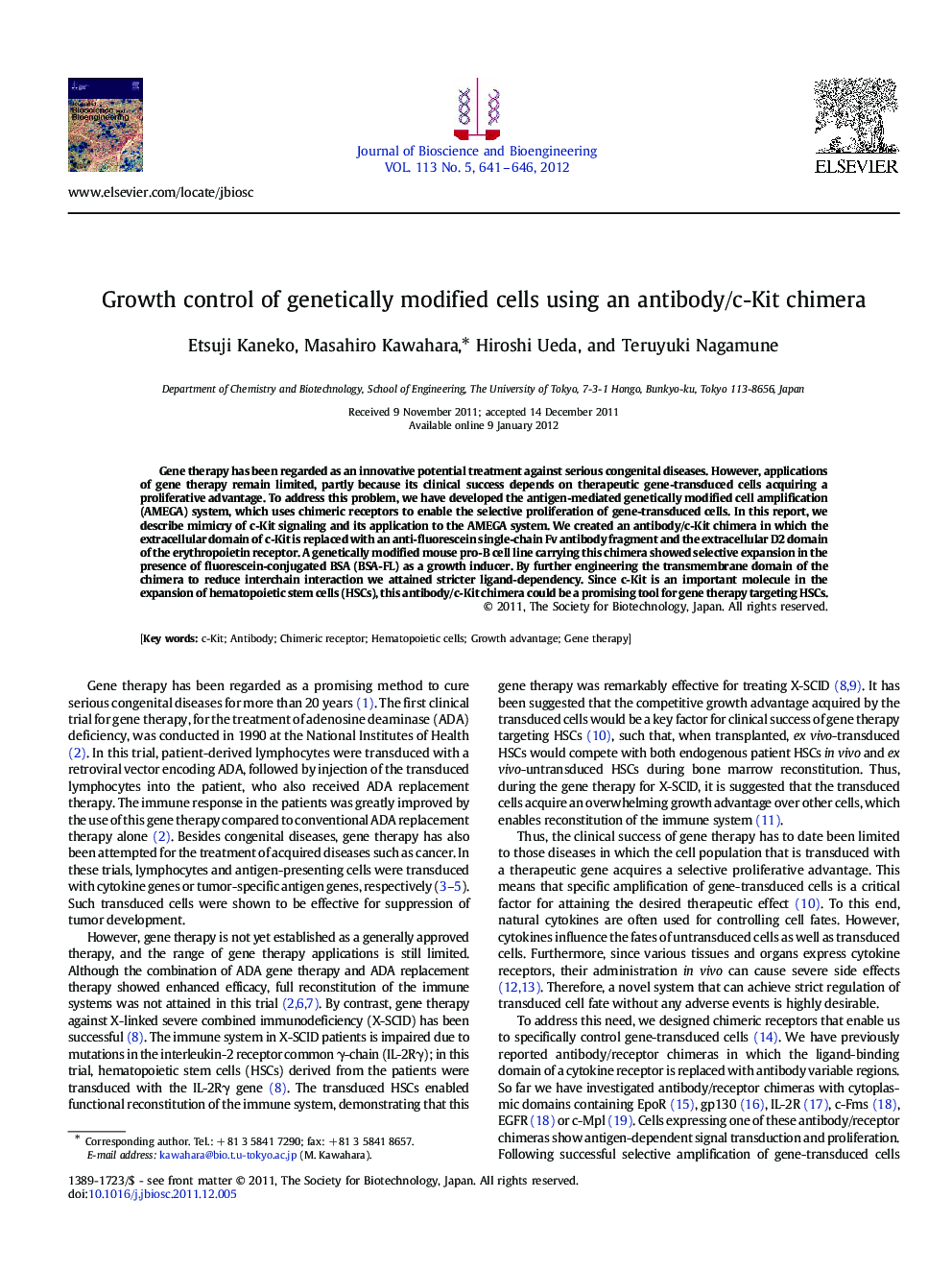| Article ID | Journal | Published Year | Pages | File Type |
|---|---|---|---|---|
| 21149 | Journal of Bioscience and Bioengineering | 2012 | 6 Pages |
Gene therapy has been regarded as an innovative potential treatment against serious congenital diseases. However, applications of gene therapy remain limited, partly because its clinical success depends on therapeutic gene-transduced cells acquiring a proliferative advantage. To address this problem, we have developed the antigen-mediated genetically modified cell amplification (AMEGA) system, which uses chimeric receptors to enable the selective proliferation of gene-transduced cells. In this report, we describe mimicry of c-Kit signaling and its application to the AMEGA system. We created an antibody/c-Kit chimera in which the extracellular domain of c-Kit is replaced with an anti-fluorescein single-chain Fv antibody fragment and the extracellular D2 domain of the erythropoietin receptor. A genetically modified mouse pro-B cell line carrying this chimera showed selective expansion in the presence of fluorescein-conjugated BSA (BSA-FL) as a growth inducer. By further engineering the transmembrane domain of the chimera to reduce interchain interaction we attained stricter ligand-dependency. Since c-Kit is an important molecule in the expansion of hematopoietic stem cells (HSCs), this antibody/c-Kit chimera could be a promising tool for gene therapy targeting HSCs.
